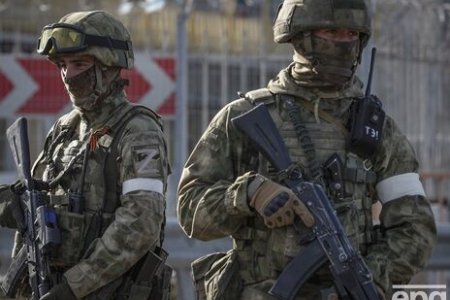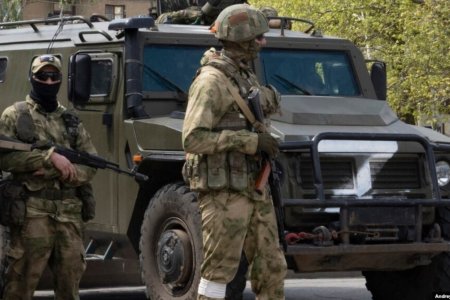
Friends of Volodymyr Zakabluk have informed the Centre for Journalist Investigations that the 45-year-old from Russian-occupied Kakhovka has died of the injuries inflicted after he was seized by the Russians and savagely tortured at the beginning of October 2024. The scant information available came in the same week that we learned of Russia’s killing in cold blood of nine Ukrainian prisoners of war in Kursk oblast and of the death in Russian captivity of 27-year-old Ukrainian journalist Victoria Roshchyna.
Victoria Roshchyna had travelled to occupied Zaporizhzhia oblast to find out and report on the situation under Russian occupation. The young woman had been seized by the invaders in July 2023, and held hostage ever since, with Russia only admitting to holding her prisoner in April 2024. She is now known to have been held for six months in a notorious prison in the Russian city of Tagenrog, where the conditions are appalling and torture prevalent. It is likely that she was killed while being moved from Tagenrog to a prison in Moscow in preparation for an exchange of prisoners between Russia and Ukraine.
Russia is directly responsible for all of the deaths, both of prisoners of war and of civilians like Victora Roshchyna, who were illegally seized, taken to Russia and, in all likelihood, tortured to death.
Civilian hostages
The Russian military have, since February 2022, been seizing and holding civilians hostage in any part of Ukraine that falls under their control. While some have been targeted as journalists, because of former / current service in Ukraine’s Armed Forces or enforcement bodies, or for their openly pro-Ukrainian position, others have ended up imprisoned either because the Russians wanted to seize their car, etc. or simply as being in the wrong place at the wrong time.
Volodymyr Zakabluk (b. 1979) worked for a local branch of Cargill Inc., a US multinational which owns a sunflower seed processing and extraction plant in Kakhovka. It is not clear why he was seized, and what kind of ‘confession’ or information the Russians were trying to force out of him through torture.
The methods used, however, are known, and include electric currents attached to the most sensitive parts of a person’s body; mock executions; savage beatings; asphyxiation and others. The bodies, some of them with hands bound, found after the Russians were driven out of Kyiv oblast, Izium and Kherson, make it clear that the Russians felt confident of their impunity. They unfortunately have every reason to believe this to be the case. In April 2022, while the international community reeled over the details of atrocities coming out of Bucha, Russian leader Vladimir Putin bestowed state ‘honours’ on the likely perpetrators.
While the true scale of the atrocities and killings of civilians will only become clear when the invaders are driven out of all occupied territory, Volodymyr Zakabluk was by no means the first civilian hostage to be tortured to death in occupied Kherson oblast.
On 13 February 2024, Father Stepan (Podolchak), a 59-year-old priest of the Orthodox Church of Ukraine and head of a church in occupied Kalanchak (Kherson oblast) was taken from his home, barefooted and with a bag over his head. Two days later, on 15 February, his wife received a phone call, telling her to come to the morgue to identify her husband. There is every reason to assume that he was tortured to death because of his refusal to transfer his newly built church and its congregation, into the Orthodox Church under the Moscow Patriarch.
28-year-old Ruslan Rusnak, who had earlier served in Ukraine’s Armed Forces, died on 20 November, 2023, just hours after he was seized by the Russians in occupied Hornostaiivka (Kherson oblast) and taken to the occupation police station. It was only on 28 November that Ruslan’s family were officially informed of his death, with the Russians claiming that he had died “of an ulcer”.
29-year-old Anastasia Saksahanska and her husband, Valeriy Saksahansky (34) were abducted by Russian soldiers from their home in Mali Kopan, a village in Kherson oblast) on 15 September 2023, and murdered. Relatives of the young couple who had a two-year-old daughter, believe that they were targeted because they had refused to take Russian citizenship and to collaborate with the Russian occupation regime.
In January 2023, the Centre for Journalist Investigations reported that Serhiy Fedorenko, a 34-year-old volunteer, had died in the Kakhovka Central Hospital a week after he was abducted by the Russians, and savagely beaten and tortured. He had disappeared on 3 January, after he and his driver were stopped by Russians in Nova Kakhovka. According to Serhiy’s wife, Natalia, the driver was freed after a few days, with a ransom having been paid for his release. Serhiy’s friends were assured by the occupation ‘police’ that he would also be released in two or three days. This did not happen. Later, his family discovered him in a Kakhovka hospital. His body was covered in bruises and other signs of savage beating, and he was breathing through a tube. He died in hospital, with his family and friends in no doubt that he was tortured to death.
Anatoly Prokopchuk, the deacon of an Evangelical church in Nova Kakhovka and his son, Oleksandr Prokopchuk were seized by the Russians on 22 November 2022. The bodies of both father and 19-year-old Oleksandr were found on 27 November in a nearby forest. Both had been shot.
Judging by the mass graves and torture chambers found in areas liberated after Russian occupation, as well as accounts from former civilian hostages and prisoners of war, it is likely that the number of civilian hostages murdered or tortured to death is much higher.
Political prisoners
Russia has already caused the death of at least four political prisoners, including Crimean Tatar civic activist Dzhemil Gafarov, whose state of health meant he should never have been imprisoned, Kostiantyn Shyrinh and Viktor Demchenko.
It is likely that Oleksandr Ishchenko, the 55-year-old Ukrainian prisoner of war and recognized political prisoner who died in a Russian SIZO [remand prison] on 22 July 2024, was also, effectively, tortured to death. Considering that he was in Russian captivity, there is no other way to explain the substantial injuries found by the forensic examination after his body was returned (as part of an exchange) on 2 August 2024.
Russia is currently holding a number of Crimean Tatar and other Ukrainian political prisoners whose state of health places their lives in direct danger. In the case of Crimean Tatar civic journalist Amet Suleimanov, even the FSB in occupied Crimea understood that he would be unlikely to survive the ‘trial’ and asked for house arrest, rather than the standard detention. All Russian state actors, however, including ‘prosecutor’ and ‘judges’ have allowed his 12-year sentence and imprisonment in horrific conditions. All doubtless understand that they will face no consequences for sending an innocent man to his certain death.
Prisoners of war
The situation with prisoners of war appears to be even worse, with Russian military not only assured of impunity, but positively encouraged to commit horrific war crimes. The likely execution of nine Ukrainian prisoners of war in Kursk oblast, reported on 13 October 2024, was only the latest of very many such atrocities, with the number of these having increased dramatically since late 2023.
The worst to date, at least on the battlefield, was reported on 1 October 2024, with the Russians having killed 16 Ukrainian POWs in the Pokrovsk raion (Donetsk oblast). That coincided with the publication of a UN report on the Treatment of Prisoners of War and Update on the Human Rights Situation in Ukraine during the period from 1 June to 31 August 2024. During the presentation of this, Danielle Bell, Head of the UN Human Rights Monitoring Mission in Ukraine, spoke of and described in detail the “widespread and systematic torture” to which Russian authorities had subjected Ukrainian POWs, and noted that the Mission had documented the deaths of ten Ukrainian POWs due to torture, poor conditions, or inadequate medical care.
There is also considerable evidence that the explosion at the Olenivka prison in occupied Donetsk oblast, which killed over 50 Ukrainian prisoners of war, was a planned crime, in the words of one witness, “a show execution”.
In its daily report on 13 October, the Institute for the Study of War noted that there had been an increase in Russian forces executing Ukrainian POWs in all areas. It concludes that “Russian commanders are likely condoning, encouraging, or directly ordering the execution of Ukrainian POWs.”



